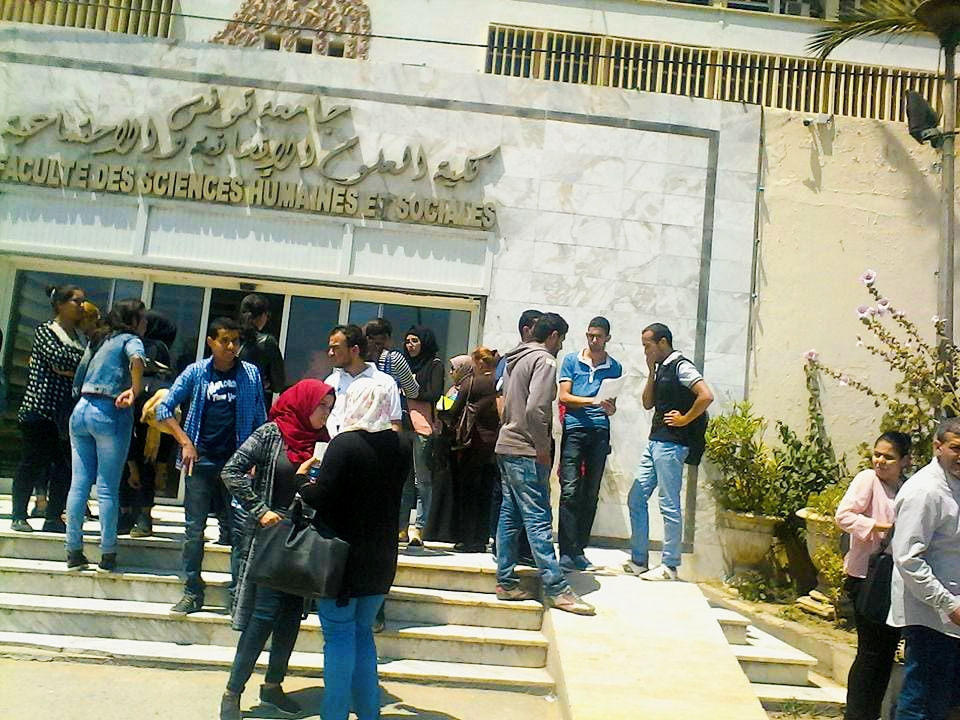The controversy in Tunisia has escalated significantly following the decision by some Tunisian universities to impose strict restrictions on student attire within the campus, amidst a sharp division in public opinion between those who see the move as necessary for organizing the educational environment and those who consider it a blatant violation of individual freedoms.
The decision, which sparked a wave of criticism, was issued by the Faculty of Law and Political Science and the Faculty of Economic Sciences and Management in the capital, explicitly prohibiting the wearing of torn pants, short skirts, and excessive use of cosmetics, while emphasizing the need to wear "appropriate" clothing that respects the campus.
* Harsh Criticism on Social Media .. Calls to Focus on Education Quality
In light of this decision, social media has been buzzing in recent hours with comments and criticisms from students, activists, and defenders of individual freedoms, arguing that the university should focus on improving the quality of teaching and scientific research, rather than the external appearance of students.
In several student forums on "Facebook", students complained about the implementation of the decision on the ground, with some mentioning that the institution's director conducted inspection tours in the classrooms and expelled students due to what was deemed "inappropriate appearance", leading to disruptions in classes and a spread of tension and anxiety.
* "Our Clothes are Modest" .. Students Reject Imposition of Guardianship
Some students expressed their anger at what they described as guardianship over their bodies, asserting that their clothing was modest and aligned with moral and social values, and that preventing them from wearing dresses or short-sleeved shirts is an unjustified restriction on personal freedom.
* Tunisian Lawyer: This is the Establishment of a Culture of Guardianship over Bodies
For his part, the well-known lawyer Monir Ben Salha criticized these decisions, writing on his Facebook page:
"It is unfortunate to see institutions that are supposed to protect freedom, entrenching a culture of guardianship over bodies. The danger lies not only in the content of the decision but in the logic being promoted, which considers torn pants and short skirts as the biggest problems of the university, rather than scientific research, curriculum development, or ensuring employment opportunities."
* Conversely .. Supporters: The University is Not a Fashion Show
On the other hand, the decision received support from media and academic figures, including journalist Sana Majri who stated:
"The decision is correct and appropriate, because the university is a beacon of knowledge, not a fashion show. The daily scenes in the streets are disturbing, as the clothing reveals more than it conceals, and these are alien manifestations to society."
* A Deeper Crisis Behind the Controversy
This controversy comes at a sensitive time, as Tunisian universities face repeated criticisms regarding declining education quality, weak infrastructure, and high unemployment rates among graduates, leading some observers to see the debate over dress as an attempt to divert attention from more fundamental issues.
* It is Noteworthy:
This is not the first time the issue of university dress has been raised in Tunisia, but it is the first time that field procedures have been activated in such a direct manner, raising questions about the future of freedom of expression and choice in the Tunisian university space.
Do you think imposing a specific dress code in universities is a step towards discipline, or an infringement on personal freedom?

